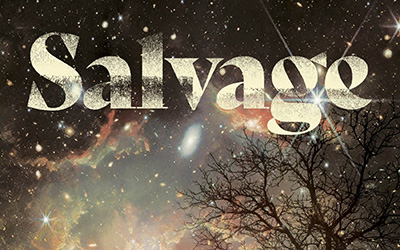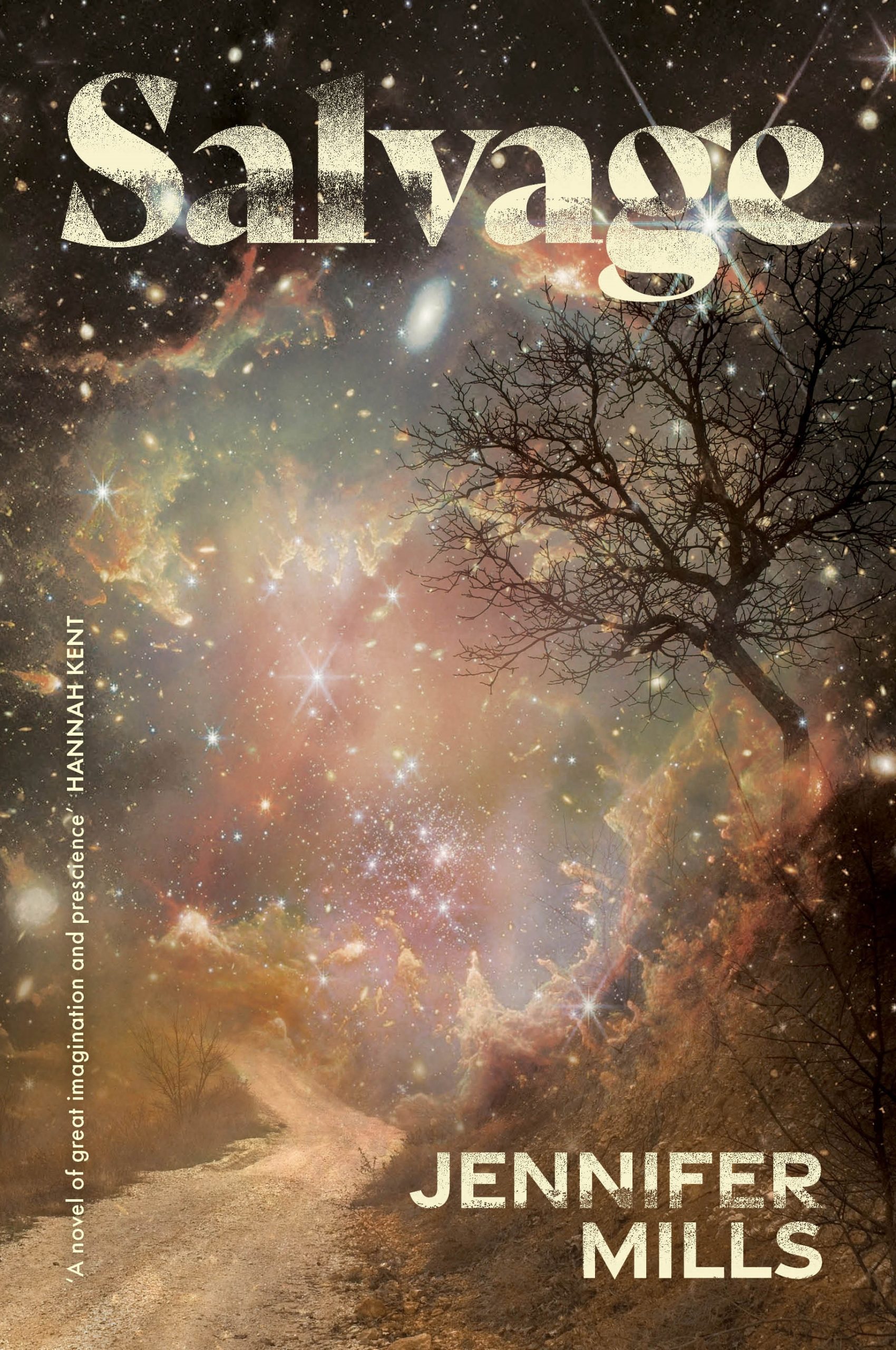
- Free Article: No
- Contents Category: Fiction
- Review Article: Yes
- Article Title: Fictions of resistance
- Article Subtitle: A new speculative novel from Jennifer Mills
- Online Only: No
- Custom Highlight Text:
Why read a dystopian novel when the present already feels dystopian? In a round-up in The New Yorker of speculative fiction released during the first Trump administration, the historian and critic Jill Lepore criticised the ‘radical pessimism of an unremitting dystopianism … [which] cannot imagine a better future’. Her point was that the genre had become mired in despair and hopelessness; that what had once been a literature of resistance in the age of George Orwell and Aldous Huxley had descended into a ‘fiction of submission’. In her masterful new novel, Salvage (2025), Jennifer Mills offers the antidote that Lepore sought: gleaming speculative fiction with a core of humanism and hope.
- Featured Image (400px * 250px):

- Alt Tag (Featured Image): Jonathan Ricketson reviews ‘Salvage’ by Jennifer Mills
- Book 1 Title: Salvage
- Book 1 Biblio: Picador, $34.99 pb, 448 pp
- Book 1 Cover Small (400 x 600):

- Book 1 Cover (800 x 1200):

- Book 1 Readings Link: https://www.readings.com.au/product/9781761563775/salvage--jennifer-mills--2025--9781761563775#rac:jokjjzr6ly9m
Mills, in her fifth novel, is clear-eyed about humanity’s existential threats. Salvage takes the climate catastrophe, rapacious corporate oligarchies, and a world war as its backdrop. It is not, however, the ‘fiction of an untrusting, lonely and sullen twenty-first century’; instead, Mills’s vision is a deeply empathetic one. It is animated by a sense of possibility – that of radically different ways of living and loving.
Salvage consists of three braided narratives. The first follows Jude, a young woman who lives a peripatetic existence in the remains of an unspecified land (presumably Europe) called the Freelands. A cataclysm has occurred, the precise nature of which remains vague – climate, war, and technology are all in the mix. The Freelands amounts to a series of refugee camps, as the survivors attempt to rebuild their shattered lives. Over the border is the Alliance, an authoritarian state in which a cadre of élites live in comparative luxury.
The catalyst in Jude’s narrative occurs when an escape pod crashes in the Freelands. The pod is the last remnant of the Station, a failed spacecraft that was designed to save the lives of society’s wealthiest, preserving them in a state of suspended animation. The Station was destroyed, all the survivors feared lost. One person did survive, a person Jude instantly recognises: her sister, Celeste Prince. She begins to care for her comatose sister, keeping their identities secret from the wider Freelander community.
In the second narrative, we discover, via a flashback, that Jude was adopted as a child before the cataclysm. The Princes are a mining family with clear echoes of the Hancock-Rinehart dynasty. In the terms of F. Scott Fitzgerald, the Princes are ‘careless people’, ones who ‘smash up people and things and then retrea[t] back into their money or their vast carelessness’. Jude grows up in Gothic isolation at a sprawling compound in regional Australia with virtually no one for company but her sister.
The complicated bond between Jude and Celeste is at the heart of Salvage. Jude is a fiercely independent character, curious and resourceful, and imbued with moral intelligence. Celeste is a more polished corporate creature, touched with the glow of affluence and in thrall to the Prince family mythology. She is oblivious to the excesses of her family, who are at least partly responsible for the climate disaster, while Jude begins to experience a dawning horror at their complicity.
The sisters love each other but grow apart, affection hardening into scepticism and mistrust. Their life on the compound becomes embattled as the external world starts to disintegrate. A lasting rupture is precipitated when Nick Fry, a Musk-like tech billionaire, offers them prized spots on the first and only voyage of the Station.
Mills is a fine prose writer with a talent for conveying character with precisely chosen details. Fry has a cult-like following and an evil charisma: his skin is described as ‘soft and glistening, like he’s used a filter’; ‘touch[ing] assistants’ arms as he goes, [he] parts groups of people like curtains’. The writer also has a sensitive eye for nature, evoking the textures of a dying world: the ‘blackened frogs stretched out on the soil’, the horizon is a ‘smudge of heat’ with ‘trees clawing into sky’.
The third and most beguiling strand of the narrative takes place in space. In a series of interludes, we are taken aboard the Station, the decaying spaceship orbiting the Earth. Celeste, passing in and out of consciousness, calls out for her sister. As in Samantha Harvey’s Orbital (2023), Mills’s characters experience space as a site of dissolving boundaries, of astonishing beauty and temporal instability. These fragmented, lyrical sequences have the feel of half-remembered dreams.
Mills has long had an interest in conveying the sensory experience of time, as in her earlier novel Dyschronia (2018), in which the protagonist, Sam, suffers a psychic disturbance that causes her to become untethered in time.
In Salvage, the fractured narratives are one of the novel’s greatest strengths and pleasures. In lesser hands, non-linear storytelling can be gimmicky; the use of complex structure can hide a paucity of thought. Not here. Mills is a confident storyteller and her plotting is meticulous. The novel glides between the timelines with ease, utilising relatively short chapters that generate suspense.
Unlike the response to Cormac McCarthy’s The Road (2008) or Margaret Atwood’s The Handmaid’s Tale (1985), the reader is not overwhelmed by the bleakness of societal collapse. Salvage suggests that we may be able to survive the damaging effects of late capitalism with our humanity intact, and that a global catastrophe will not necessarily extinguish the instinct for mutual aid. This is evident in the strong connection that persists between Jude and Celeste, as well as in Jude’s blossoming romance with a medic, Nora. It is also evident in the surviving communities of the Freelands. The Freelanders’ lives are far from a socialist utopia, but they are a compassionate and supportive people, driven by the determination to survive and rebuild.
In her thrilling, urgent novel, Mills offers a superb contribution to the ‘fiction of resistance’, one that gives the reader cause to hope.


Comments powered by CComment